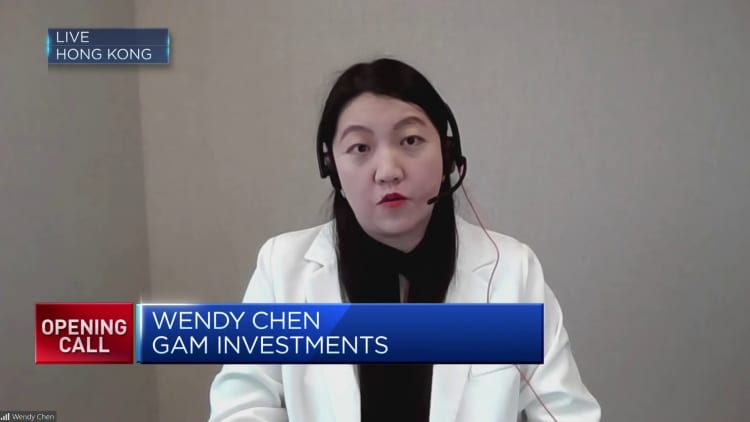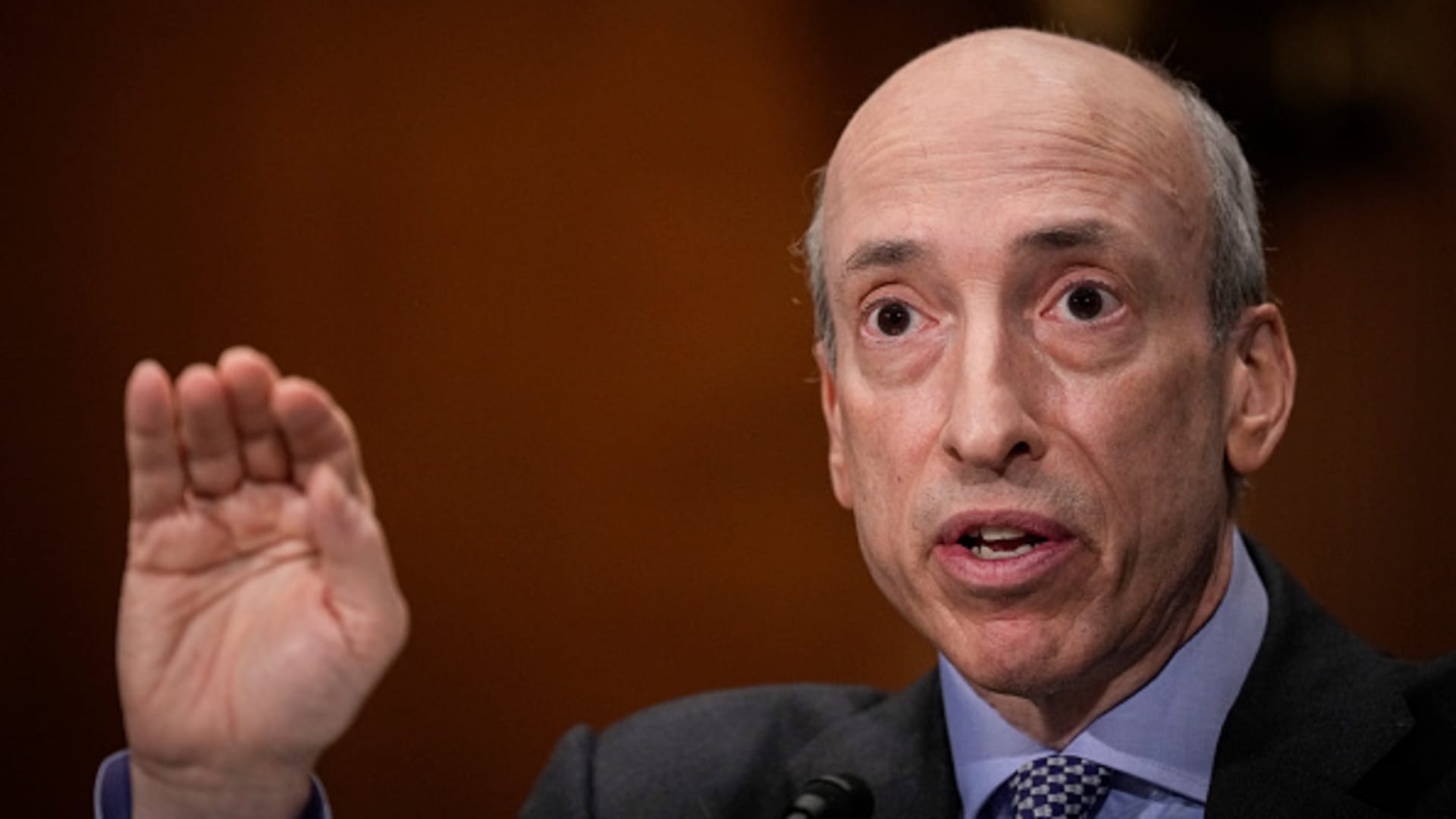China’s central bank governor said there was scope to further cut banks’ reserve requirements and vowed to use monetary policy to support consumer prices.
Bloomberg | Bloomberg | Getty Images
BEIJING – The heads of China’s central bank and economic planning agency signaled that authorities were ready to take further steps to boost growth, but did not announce any large-scale stimulus plans.
Pan Gongsheng, governor of the People’s Bank of China, told reporters on Wednesday there was scope to further reduce banks’ reserve requirements – the amount of cash they must hold on hand. He also pledged to use monetary policy to “mildly” support consumer prices, according to a translation of his Mandarin remarks on CNBC.
Pan spoke at a press conference with other key business and financial leaders in the country on the sidelines of this year’s annual parliamentary sessions.
Leaders defended China’s growth target of around 5% for the year while maintaining a budget deficit of 3%.
In an annual government work report released on Tuesday, Premier Li Qiang pledged to transform the world’s second-largest economy, which faces a range of economic challenges including a housing slump, high local government debt, deflation and weak consumer demand.
Still, the labor report fell short of many analysts’ expectations for further stimulus and raised questions about how China would be able to achieve another year of growth of around 5%.
National GDP rose 5.2% in 2023 from low levels in 2022 as China emerged from its strict “zero Covid” measures. China’s consumer prices posted their biggest fall since 2009 in January, while producer prices fell for a 16th month – underscoring the major challenge Beijing faces in getting the world’s second-largest economy back on track.
Still, Pan said China has extensive monetary policy tools and vowed to push for lower financing costs in the coming months.
The PBOC last cut reserve requirements for banks by 50 basis points starting Feb. 5, providing 1 trillion yuan ($139.8 billion) in long-term capital. It was a much larger decline than analysts expected.
Stimulate growth
This year, China will “further strengthen macroeconomic policies,” said Zheng Shanjie, chairman of the National Development and Reform Commission, the country’s economic planning agency.
He noted that this would require coordination of fiscal, monetary, employment, industrial and regional policies as China continues to advance macroeconomic policy adjustment.
“Of course, we clearly see that there are still many difficulties and problems in achieving the expected goals,” Zheng said, according to CNBC’s translation of his remarks in Mandarin.
 China’s top securities regulator vows to take “strict” action against market manipulators
China’s top securities regulator vows to take “strict” action against market manipulators
He noted that the “external environment may become more complex and severe.” Domestically, China’s efforts to remove barriers to doing business in the provinces by creating a “national unified market” could cause problems, he added.
Zheng also said there was fierce competition in some industries, production and operation difficulties for certain companies, and persistent risks in other areas. He did not mention real estate by name.
China’s Commerce Minister Wang Wentao said foreign trade is facing a serious situation this year.
Zheng, the NDRC chief, said China’s exports rose 10% in the January-February period from a year earlier, but did not specify whether this was in Chinese yuan or U.S. dollars. The next tranche of trading data is due to be released on Thursday.
Bonds, debt and domestic demand
At the press conference, China’s Finance Minister Lan Fo’an told reporters that the overall local debt situation was “controllable.”
He said local government debt had declined following his ministry’s work last year and it was working on a longer-term mechanism to address the problem of hidden bad debts, while trying to mitigate the problem through a range of measures.
The “ultra-long” special government bonds announced in Tuesday’s government work report were a rare surprise and only the fourth time they have been issued since the 1990s.

NDRC chief Zheng told reporters that these bonds will support technological innovation, energy security and other key areas – which are among President Xi Jinping’s “new productive forces,” according to the work report.
He also said policy plans to modernize equipment will help boost consumption in the world’s second-largest economy, creating a market worth more than 5 trillion yuan (about $694.5 billion). He said this plan would include household appliances and vehicles, among other things.
China’s economy is being hit by weak consumption as a housing market slump, debt risks and stock market declines weigh on confidence.
Boosting domestic demand ranks third on the list of 10 economic priorities in the Chinese government’s plan for this year, underscoring the seriousness of the matter.
In the short term, the main concern for investors remains how focused China’s policymakers are on ensuring growth.
“To achieve that [target of around 5%]”Many important policy measures were proposed in the government work report,” Huang Shouhong, head of the report team and director of the State Council Research Office, told reporters on Tuesday in Mandarin, translated by CNBC.
“If China’s economy experiences unexpected shocks or the international environment experiences unexpected changes in the future, we still have reserve resources in our policy toolbox,” he said.
Source link
2024-03-07 00:33:20
www.cnbc.com














